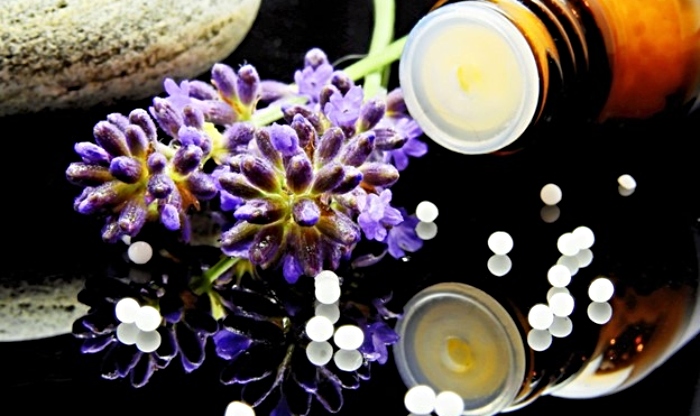
Mental health is a topic many avoid, yet it is crucial for a healthy, developing society.
More and more people experience mental health issues and an inability to cope with everyday life due to countless reasons, including unrealistic societal expectations, overwhelming responsibilities, trauma and more.
What is the right method to deal with mental health issues? Is there an alternative to conventional psychotherapy, and what would that be?
Exploring these questions, we will take a closer look at homeopathy medicine and whether it can benefit treatment of mental disorders.
Disclaimer: The following content is for informational or educational purposes only and does not substitute professional medical advice or consultations with healthcare professionals.
Homeopathy overview
“Homeopathy” refers to an old medical system developed during the 1700s in Germany. Homeopaths are homeopathy doctors who believe in the philosophy that the body can heal itself when given the right stimuli.
Homeopathic medicines are various plants and minerals that aim to stimulate the body’s self-healing process by triggering the immune system with small doses of its illness.
The philosophy behind this is very similar to how vaccines against viruses work, and people with homeopathy expertise refer to it as “like cures like”.
Present-day physicians and conventional medicine do not implement homeopathic treatments as there’s insufficient evidence of their effectiveness alone.
However, when combined, conventional medicine, homeopathy and overall lifestyle changes positively affect various physical and mental health issues.
The importance of mental health
Mental health has been taboo in many countries worldwide for years. While this is still true for some of them, others have emphasized its importance and brought various conditions and consequences to light.
Institutions and governments began discussing mental issues more openly.
This, in turn, motivated people who feel overwhelmed and unable to cope with their personal situations or trauma to begin and seek help without worrying about social stigma.
Mental disorders and illnesses are different from physical health as they relate to our social, emotional and psychological well-being.
However, they can adversely affect physical conditions as they influence our thoughts, emotions, behaviour and overall ability to handle stress. All of these factors also affect our immune system responses.
In addition, the opposite is also true. There’s a direct relationship between mental and physical health.
On one side, people with mental issues are at a higher risk of developing chronic physical conditions.
On the other hand, chronic physical conditions in people negatively affect their mental state and health.
Moreover, poor mental health can lower the overall quality of everyday life, lead to problems in personal and professional relationships and negatively affect our social interactions by altering our behaviour.
That’s why early intervention and timely treatment are crucial for mental health.
Types of mental health disorders
While there are many mental health disorders, we can group them by type, symptoms and general characteristics.
The main categories are listed below:
● Anxiety disorders include generalized anxiety, panic attacks, depression, and social or separation anxiety.
● Trauma-related disorders include PTSD (post-traumatic stress disorder), ASD (acute stress disorder) and adjustment disorders.
● Personality disorders may include OCD (obsessive-compulsive disorder), borderline personality disorder and paranoia.
● Psychotic disorders include schizophrenia, delusional disorder and more.
Homeopathic remedies for mental disorders
Homeopathic remedies can be a good addition to conventional psychotherapy and applied techniques for overall quality of life improvement.
Homeopathic medications are applied for different mental conditions and sometimes even for different symptoms.
Here are some of the more commonly seen ones:
● Ignatia Amara – depression, dull mood and non-communicative behaviour
● Aurum Metallicum – depression and suicidal tendencies
● Carcinosin – chronic and severe depression
● Ignatia – mood swings, depression or anxiety due to grief or loss of a loved one
● Belladonna – bipolar disorder and violent or anti-social behaviour
● Veratrum Album – bipolar disorder and uncontrolled screaming or destructive behaviour
● Aconitum Napellus – generalized anxiety disorder and panic attacks
● Aconite – anxiety due to past trauma
● Argentum Nitricum – hypochondria, anxiety due to uncertainty
● Kali Arsenicosum – hypochondria, fear of sickness or death
● Arsenicum Album – anxiety due to fear of being left alone or feeling of imperfection
● Gelsemium Sempervirens, Lycopodium, Silica – anxiety due to feelings of inadequacy or lack of self-confidence, trembling and palpitations, fear of new things, fear of public speaking
● Aconitum – PTSD due to past trauma, panic attacks, fear of death
● Arnica – depression due to traumatic experience, denial of feelings
● Stramonium – anxiety due to a traumatic experience or violence, dark thoughts, night terrors
● Argentum nitricum – neurosis, OCD, compulsive and ritualistic habits
● Hyoscyamus Niger – schizophrenia and paranoia, feelings of being followed or plotted against
● Lachesis – schizophrenia, bipolar disorder, mood swings, jealousy and suspicion
● Platinum Metallicum – delusion, megalomania, superiority complex
(image by Pexels.com licence free)


















Recent Comments